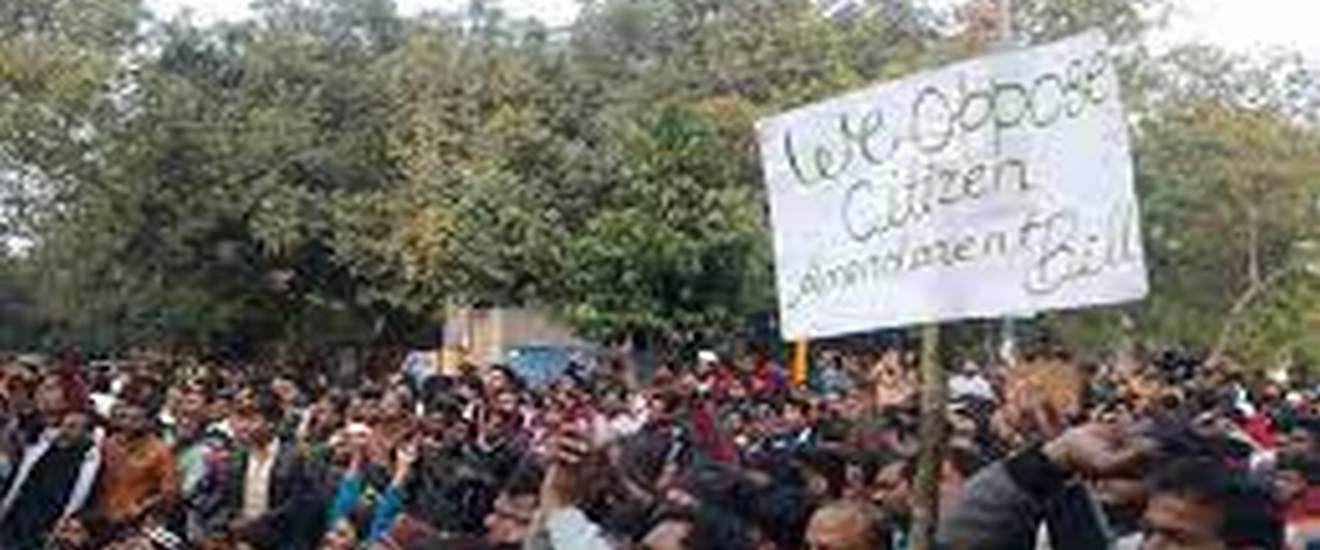Analysis
Court Lays Down Restrictions on the Right to Protest
Protests anodize democracy from arbitrary action, however the Court held that there is a need to balance this right with other concerns.

The movement against the Central Government’s Citizenship (Amendment) Act 2019 (CAA) and the plan to initiate a nation-wide National Register of Citizens (NRC) had its watershed moment with the Shaheen Bagh protests in Delhi. The sit-in protest was initiated by a group of women in the vicinity, which later swelled into a huge crowd that blocked the roads with tents, a library, a large replica of the India Gate and the Map of India.

Protests at Shaheen Bagh on January 15th 2020
Amit Sahni, a lawyer-activist, approached the Delhi High Court on January 14th 2020, complaining that the Shaheen Bagh protests had blocked several important roads including the Okhla underpass for a period of thirty days. He pleaded with the Court to direct the Delhi Police to resolve the blockage and ensure smooth traffic flow, in and around the area. The Court ordered the appropriate authorities to address the concerns of the petitioner by taking necessary steps as per the policies in place. It further ordered the authorities to ensure that their decisions should be in the larger public interest and should not be detrimental to law and order. The petitioner filed an appeal to the Supreme Court on January 20th 2020 as the situation remained the same.
The matter was heard by a three-judge bench comprising of Sanjay Kishan Kaul, Aniruddha Bose and Krishna Murari JJ in Amit Sahni v Commissioner of Police & Ors.
The Right to Protest Under Colonial Rule v. Democracy
The counsel for the protestors argued that Articles 19(1)(a) and 19(1)(b) provided an absolute right to peaceful protest, irrespective of the number of people involved in the protest, or the space they occupied to exercise this right. The State could only impose ‘reasonable restrictions’ on this right on grounds of ‘public order’.
The Court accepted that India gained its freedom through protest against the colonial rule. However, it cautioned against comparing the colonial regime with the present form of democratic governance. Under Articles 19(1)(a) and 19(1)(b), citizens have a right to protest and dissent against the State. These rights must be respected and encouraged by the State for the healthy functioning of democracy, bu its exercise can be subject to reasonable restrictions on a number of grounds, including the interests of the sovereignty and integrity of India and public order.
Do Citizens Have an Absolute Right to Protest?
Solicitor General Tushar Mehta arguing against the form of protests in Shaheen Bagh cited the Supreme Court’s observations in Himat Lal K. Shah v Commissioner of Police, Ahmedabad & Anr (1973). In this case, the Court held that a right to hold meetings on public streets was subject to – (a) the control of the appropriate authority regarding the time and place of the meeting; and (b) considerations of public order.
The Court then referred to its own judgment in Mazdoor Kisan Shakti Sangathan v Union of India & Anr (2018). In this case, the Court had to consider the regulation of demonstrations at Jantar Mantar in New Delhi. In order to strike a balance between the interests of the residents and the right to protest, it directed the police authorities to formulate a mechanism for the limited use of the space for protests. It observed that each fundamental right, be it of an individual or of a class, does not exist in isolation and has to be balanced with that of their counterparts.
Based on these precedents, the Court in its judgement dated October 7th 2020, concluded that democracy and dissent go hand in hand, but the demonstration of this dissent cannot occupy public ways and spaces indefinitely, especially when it is to the detriment of other citizens. The concerned authorities must take action to keep public areas free of encroachments and obstructions.
(Zeeshan Thomas is an intern at the Supreme Court Observer and is studying law at CLC, DU.)
